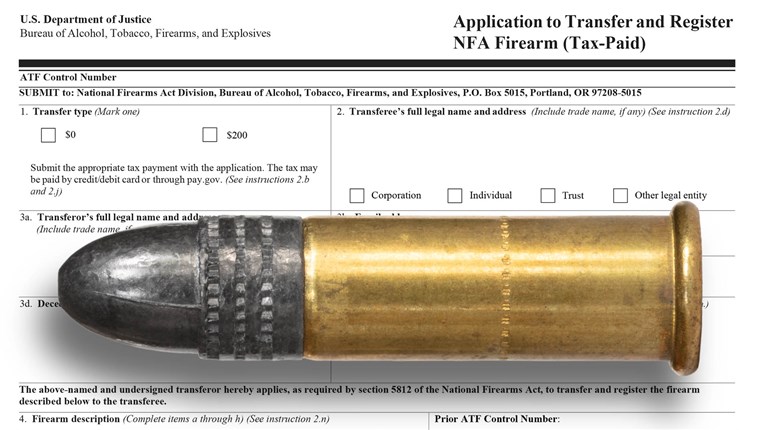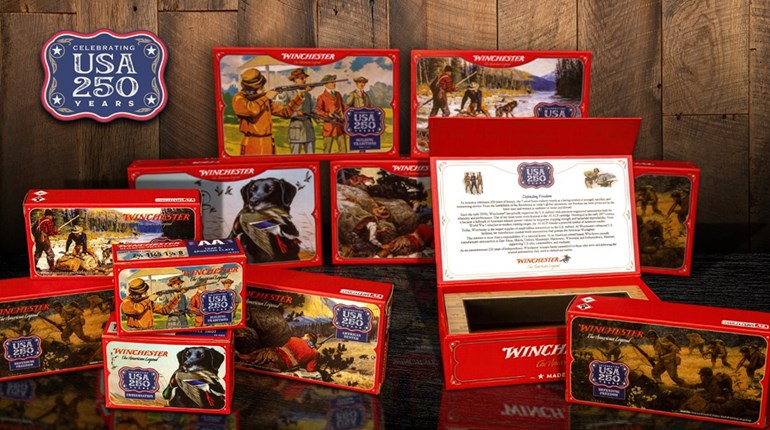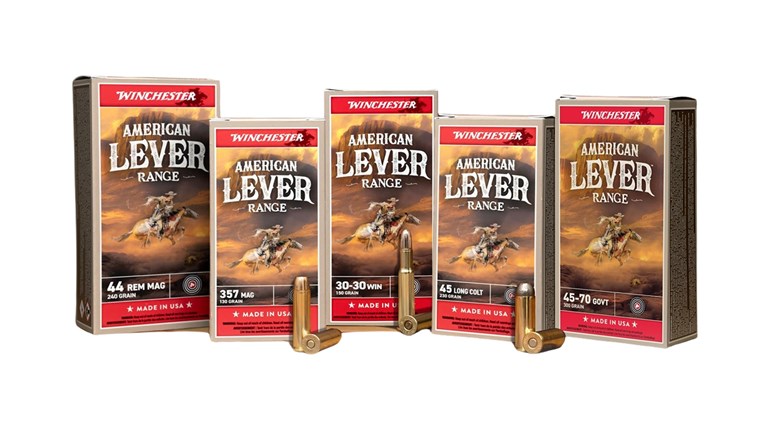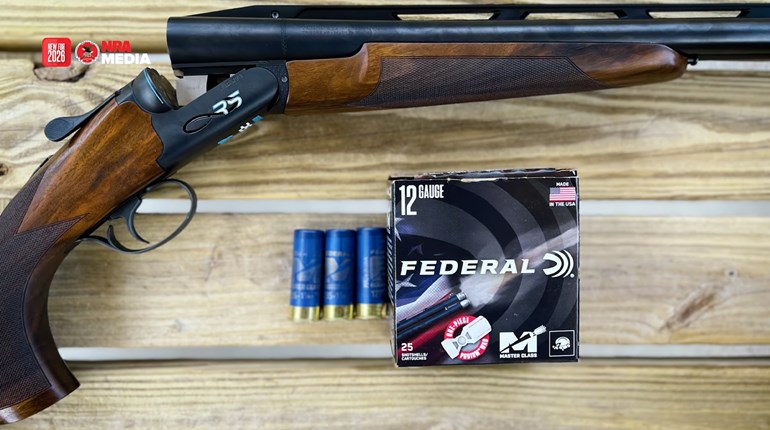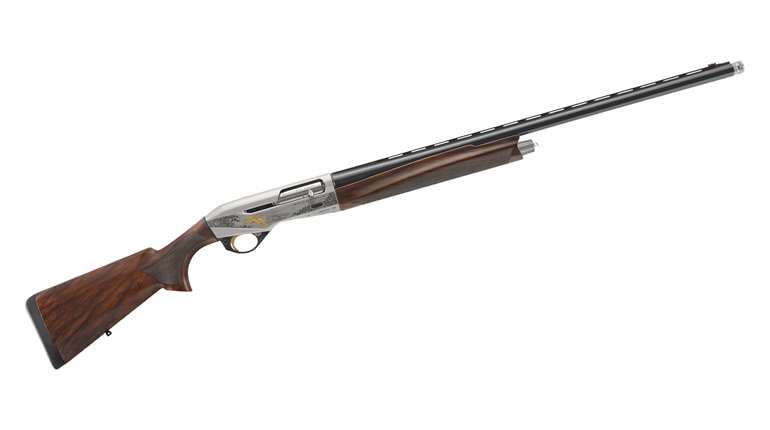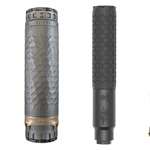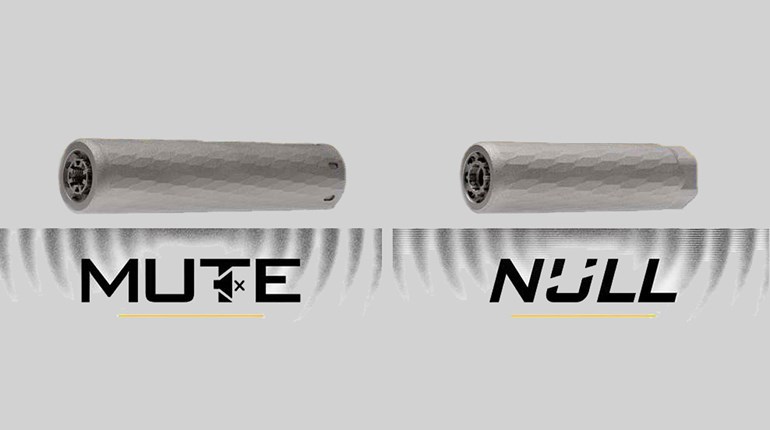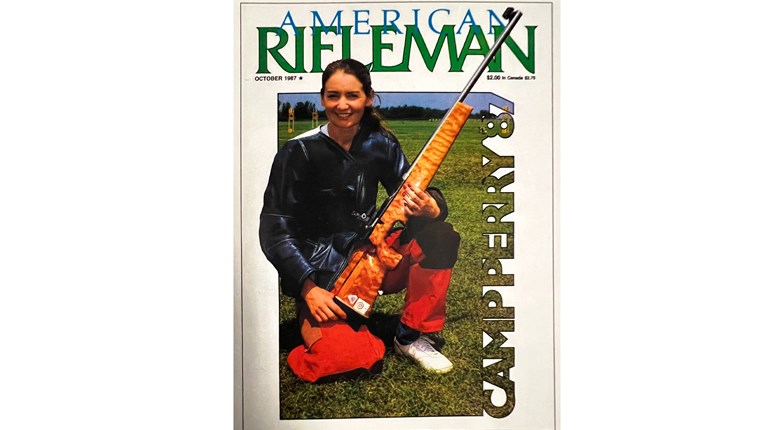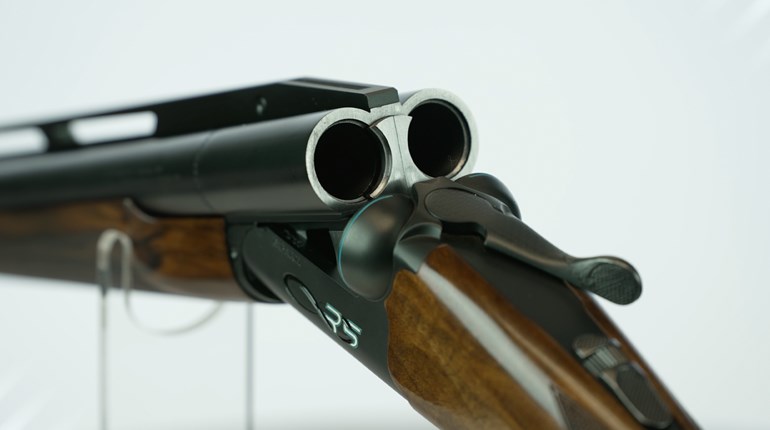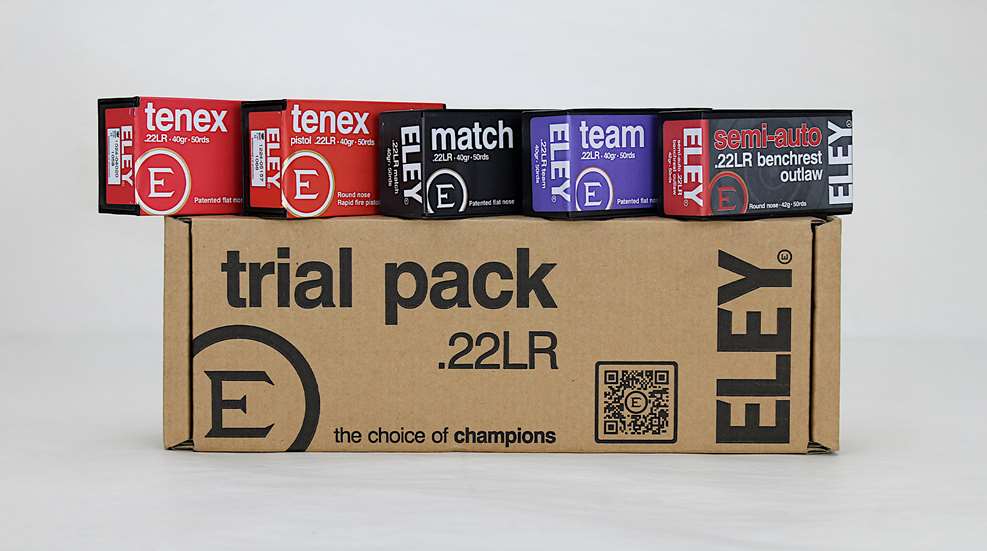
Shooting .22 Long Rifle in competition presents a unique challenge: unlike other games, handloading match-grade ammunition isn’t an option. We must buy our rimfire ammo and can only determine what works best by testing a variety in our rifles or pistols. Eley now makes testing easier by offering five-box variety in several convenient Trial Packs.
Eley ammunition is manufactured in England, and given its geography and population, the UK has little room for long-range shooting, so competitions there have long focused on shooting the .22 Long Rifle out to 100 meters. After nearly a hundred years in the ammunition business, that is perhaps the reason Eley has so many options in match-grade .22 Long Rifle ammo, whereas here in the US, makers of competition ammo since about the 1980s have focused on centerfire cartridges with comparatively little attention given to manufacturing true Olympic-grade .22 Long Rifle ammunition.
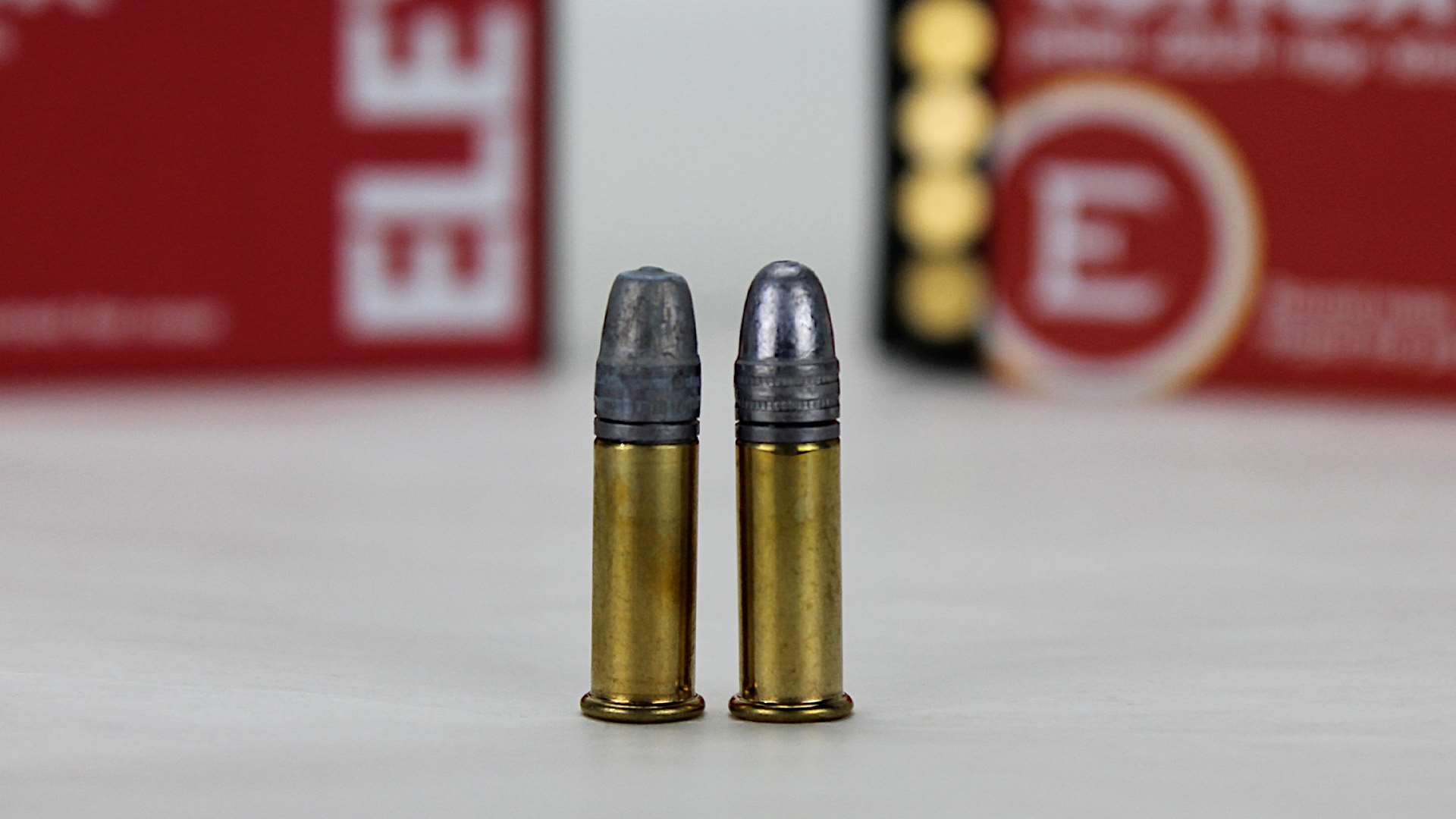
The majority of Eley’s line of .22 Long Rifle offerings are intended for different levels of competition, some developed specifically for rifles or semi-automatic actions or pistols. Developing is one thing; when we’re trying to punch 60 holes in 60¼-inch circles at 50 feet during a match, consistency is king, and consistency in a batch or lot of ammunition must be determined by testing. Eley enjoys a long reputation for manufacturing top-tier .22 Long Rifle competition ammo because before shooters test Eley ammo in their firearms, Eley has already tested every lot before it goes into 50-round boxes.
TESTING PRECISION
“Accuracy is defined by Eley’s proof range, where we shoot 50 shots from four different manufacturers’ firearms at 50 meters,” Eley Sales and Marketing Director Micheal Atkinson said in an email exchange.
Though simply measuring group size renders an accurate-enough indication of an ammunition’s precision for the needs of most shooters, manufacturers and the military typically use more informative statistical Radial Standard Deviation (RSD), Circular Error Probability (CEP) or measurement of a group’s mean radius to evaluate ammunition precision. RSD measures the distance (standard deviation) that shots land from the center of the group, rather than overall group size. As with any scientific analysis, the larger the sample size, the more confident the result, so Eley fires 200 rounds from each lot to determine its RSD. The exception is hunting ammunition, the precision of which Eley determines the way you and I do, by measuring group size.
Asked how Eley ranks its ammunition offerings from “accurate” to “most accurate” after such rigorous testing, Atkinson provided the following list:
- Tenex
- Ultra
- Tenex pistol
- Tenex biathlon
- Tenex rapid fire pistol
- Match
- Team
- Semi-Auto Precision
- Club
- Force
- Contact
- Sport/Target
And for hunting ammo:
- High Velocity Hollow Point
- Subsonic Hollow Point
To this list we can add unranked Semi-Auto Benchrest Precision, Semi-Auto Benchrest Outlaw and Bullseye Pistol X.
We all know the adage, “You get what you pay for,” and all shooters expect that higher-priced ammunition will shoot with more precision than cheaper ammo. That, of course is not an inviolate rule, as we also know that what shoots well in one firearm may shoot less well in the next (hence Eley’s employment of four different firearms in testing ammo lots). Happy is the rimfire competition shooter whose new rifle shoots more accurately or just as well with $15-per-box ammo than with $25-per-box ammo. But it takes testing a variety of ammunition for each shooter to find which specific ammo/firearm hookup is a true romance.
TRIAL PACKS
Eley’s new Elite Competition Trial Pack offers variety en masse, being composed of five different 50-round boxes of some of Eley’s best. Included are Tenex, Match and Team, all loaded with Eley’s patented flat nose bullet that place them at the top of Eley’s precision ranking. Tenex Pistol differs in having a round nose bullet and a drier lubricant for reliable magazine feeding, as does Semi-Auto Benchrest Outlaw, both also included in the Trial Pack.
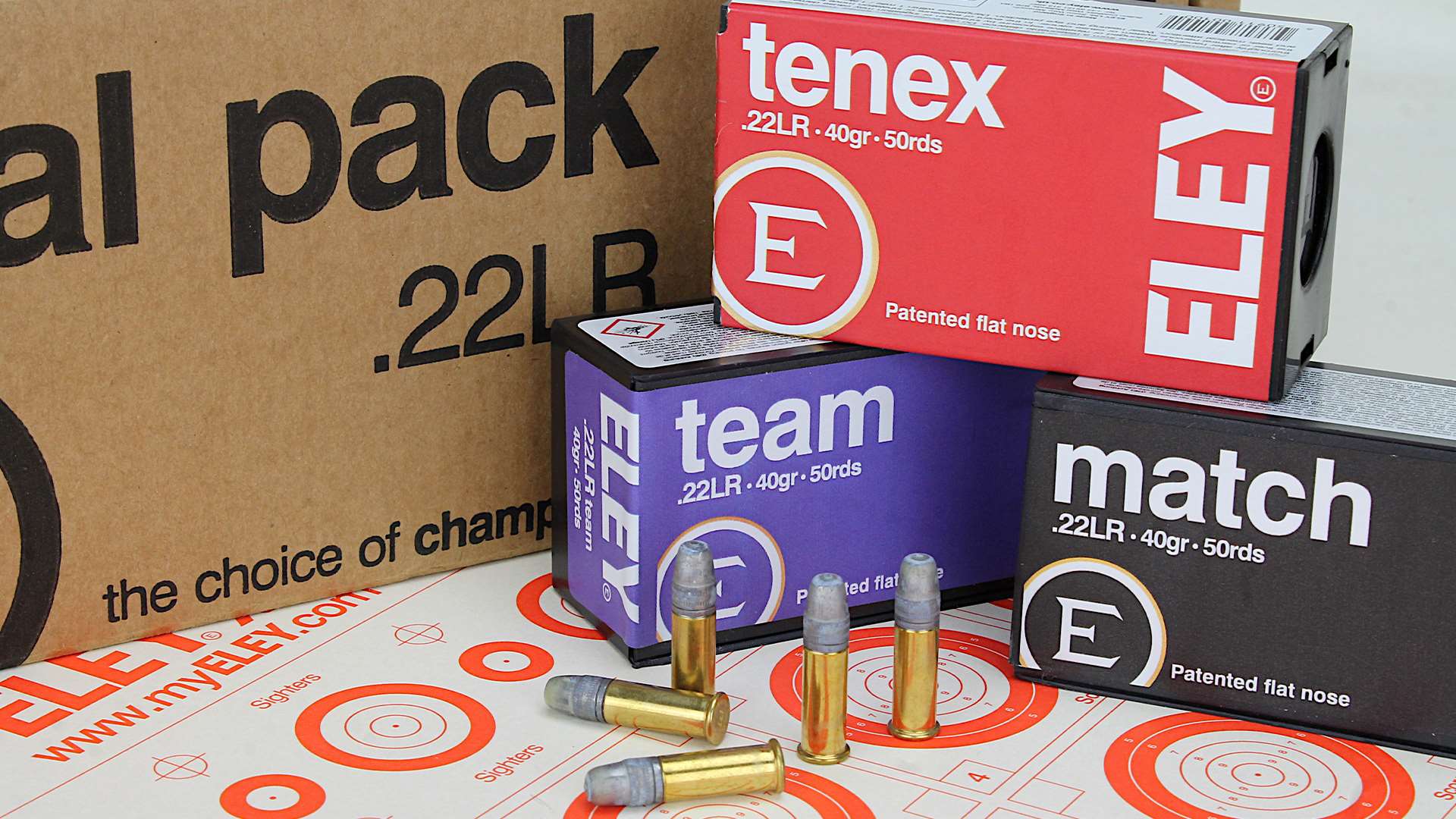
Full recommended retail price of this ammo if purchased separately is $124.50; however, Killough Shooting Sports in Texas has the Elite Competition Trial Pack for just $80. Eley offers other Trial Packs, as well, including Target and Club ($48), High Energy ($47) and Precision Semi-Auto ($42) Trial Packs.
VELOCITY CHOICES
For the most demanding competition shooter, Eley’s latest is a Trial Pack of five boxes of Tenex, each box of 50 cartridges varying in bullet velocity from 1,040 f.p.s. to 1,085 f.p.s. Over the decades, Tenex may well have racked up more wins in the biggest international and Olympic .22 LR competitions than any other brand or line of ammunition. Because bullet velocity is affected by altitude and temperature (air density), varying the velocity in this already premier ammunition can fine tune precision at different elevations and in different seasons when the goal is to outshoot others who are consistently hitting the .150-inch center of the NRA 50-foot target or the 1-inch X-ring of the NRA A-25 target at 100 yards. The Tenex Trial Pack offers convenience for the shooter who wants to determine which velocity works best in one’s .22 under varying conditions or at one’s home range.
TARGET AND CLUB
For less demanding competition—or less demanding firearms—Eley packs 50-round boxes of Target, Club, Semi-Auto Outlaw Benchrest, Ultra and Bullseye Pistol X in its Target and Club Trial Pack. Eley’s Ultra is actually a high-end inclusion, intended for shooting beyond 100 yards about on-par with Tenex precision (Eley recommends sticking with Tenex if distance doesn’t exceed 100 yards). In addition to testing at a low RSD, Ultra’s 40-grain bullet is deliberately light-colored so that the long range shooter can more readily see the bullet tracking toward the distant target. Full retail price of a single 50-round box of Ultra alone is $30, so there’s some extra value in this Trial Pack’s $48 price.
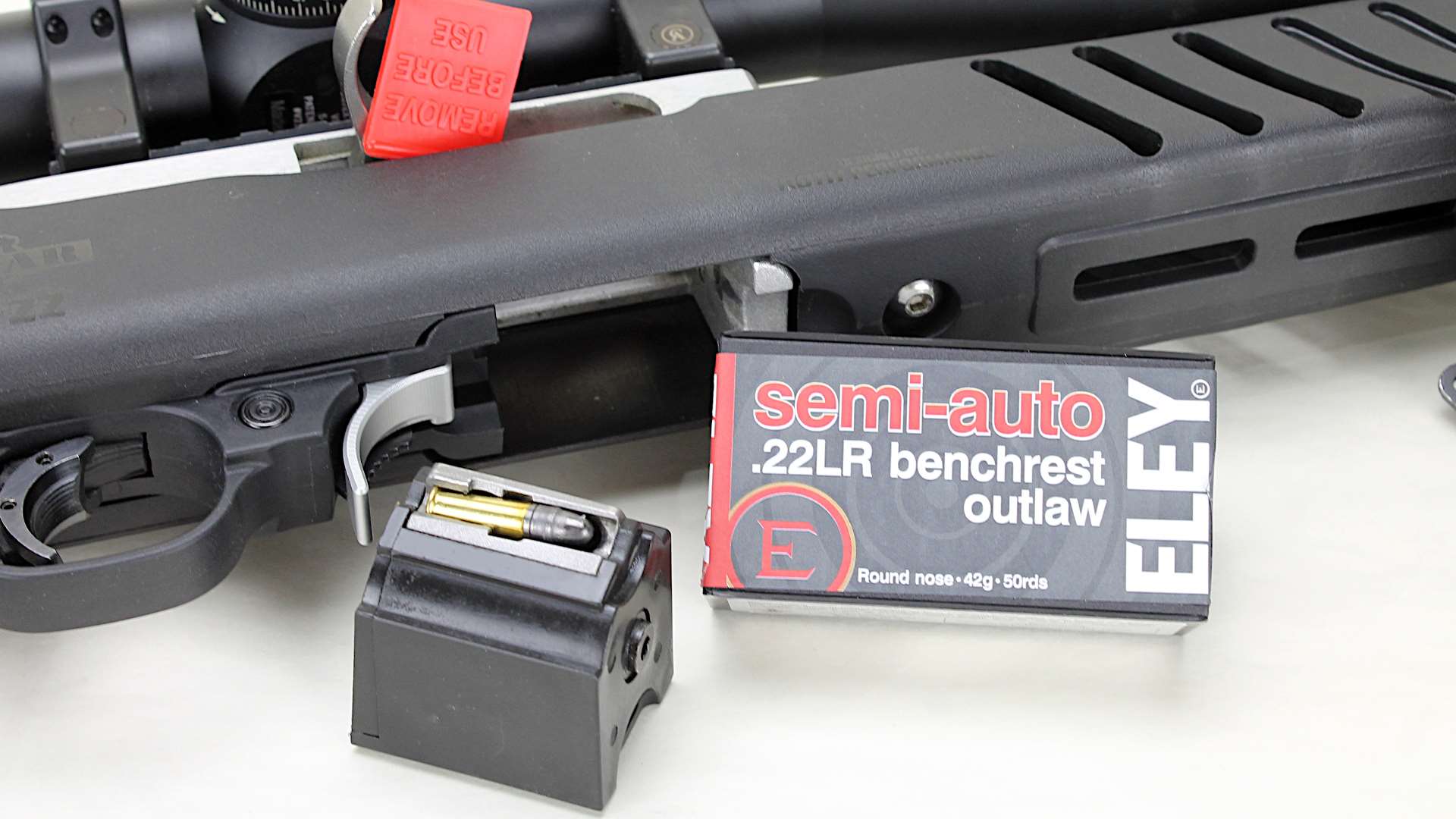
HIGH ENERGY
A 50-round sample of Ultra also appears in the High Energy Trial Pack, along with High Velocity HP, Force, Contact and Subsonic Hollow Point. At 1,040 f.p.s., the latter is about as fast as a subsonic round can be and still be assured to launch at a subsonic velocity above 5,000 feet elevation, where the speed of sound is 1,100 f.p.s. Contact is a subsonic round with a 42-grain bullet even closer to the ragged edge of supersonic muzzle velocity, 1,090 f.p.s.
PRECISION SEMI-AUTO
As the name indicates, the Precision Semi-Auto Pack focuses on semi-automatic actions, the rifle type of choice for run and gun competitions. Semi-Auto Precision and Semi-Auto Precision Outlaw appears in the selection, along with Contact, Force and Club offerings. All of these feature round noses to feed from semi-automatic magazines without hiccup.
Force launches a heavy-for-.22 Long Rifle 42-grain bullet at a muzzle velocity of 1,250 f.p.s. deliberately designed to reliably cycle semi-automatic actions. “Featuring a new propellant utilizing a distributed pressure curve that accelerates the bullet to a supersonic velocity, providing maximum knock-down force,” Eley marketing literature describes the cartridge, “Eley Force is a .22 LR round that delivers both strong kickback and accuracy.” Imagine that: bragging about the heavier recoil of a .22 Long Rifle cartridge.
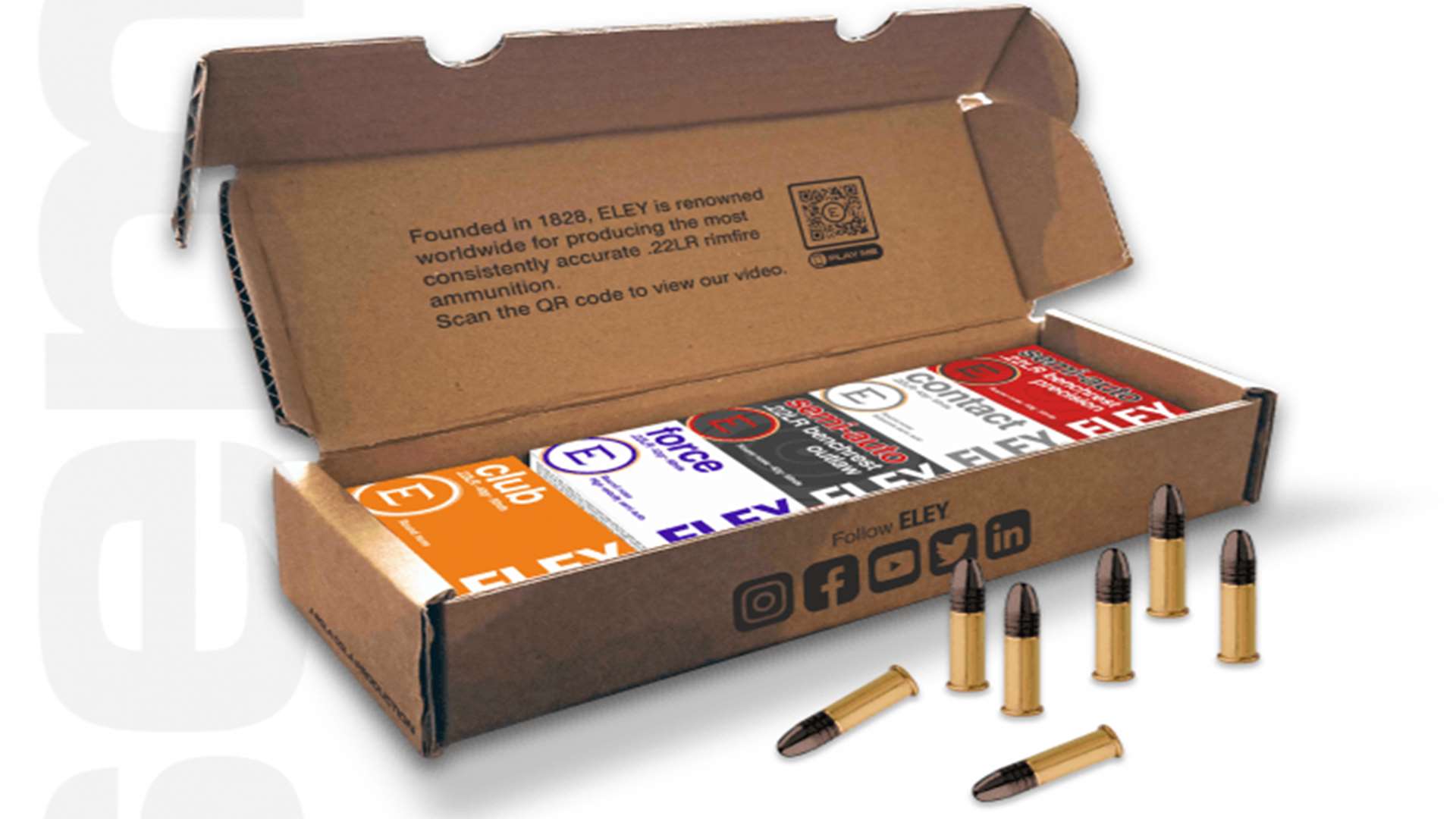
OLD RECIPE
When shooting these Trial Packs, you’ll likely note that some cartridges feel quite greasy while others not so much so. Heeding the, “If it ain’t broke, don’t fix it” rule, the bullet lubricant on Eley’s premier cartridges such as Tenex and Match is a recipe that goes back to at least the 18th century. Commonly used as a ball patch lube for muzzleloaders, it is a mixture of beeswax and tallow (rendered animal fat). An excellent lubricant that is important to the high-end performance of the ammunition, it can nonetheless build up quickly in firearms, requiring routine cleaning of at least the chamber, even though many Smallbore competitors thoroughly clean their bores only at the end of the season.
Other Eley cartridges, such as Club and Semi-Auto Precision Outlaw, get an application of a paraffin wax lubricant. Paraffin wax is thinner and drier than the beeswax-tallow mixture so is less prone to collecting debris or gumming up the works in a semi-automatic, and it has a higher melting point than beeswax-tallow, the latter an important point when competing in the summer sun. These cartridges, appearing further down that list above, hint at the importance of lubricant qualities to precision shooting of lead bullets.
COST VS PRECISION
Compare each Trial Pack contents with Eley’s above list ranking ammo precision, and find one that suits your purpose. Target and Sport are Eley’s “plinking” ammo, retailing at around $7-$10 per box; Contact and Force retails for about $8-$10 per 50-round box. Eley considers its $9-$11 per box Club ammunition as the start of its precision competition ammunition line. If you can find Eley Match for $17 per box, you’re doing well; top-of-the-line Tenex typically runs in the $21-$25 per box neighborhood, with Ultra fetching a couple dollars more.
Reality check: Here in the US, Eley must bear extra freight and import costs that appear in the prices. Is there cheaper American plinking ammo? Absolutely. Is there cheaper or better American-made precision .22 Long Rifle ammo? You’d be hard-pressed to find more than a couple of truly competitive American offerings, and that’s not much option when looking for that perfect ammo/firearm combination to win in your classification or outshoot your gun club buddies.
In the end, winning is the goal—and an Eley Trial Pack just might help you find your way there.













